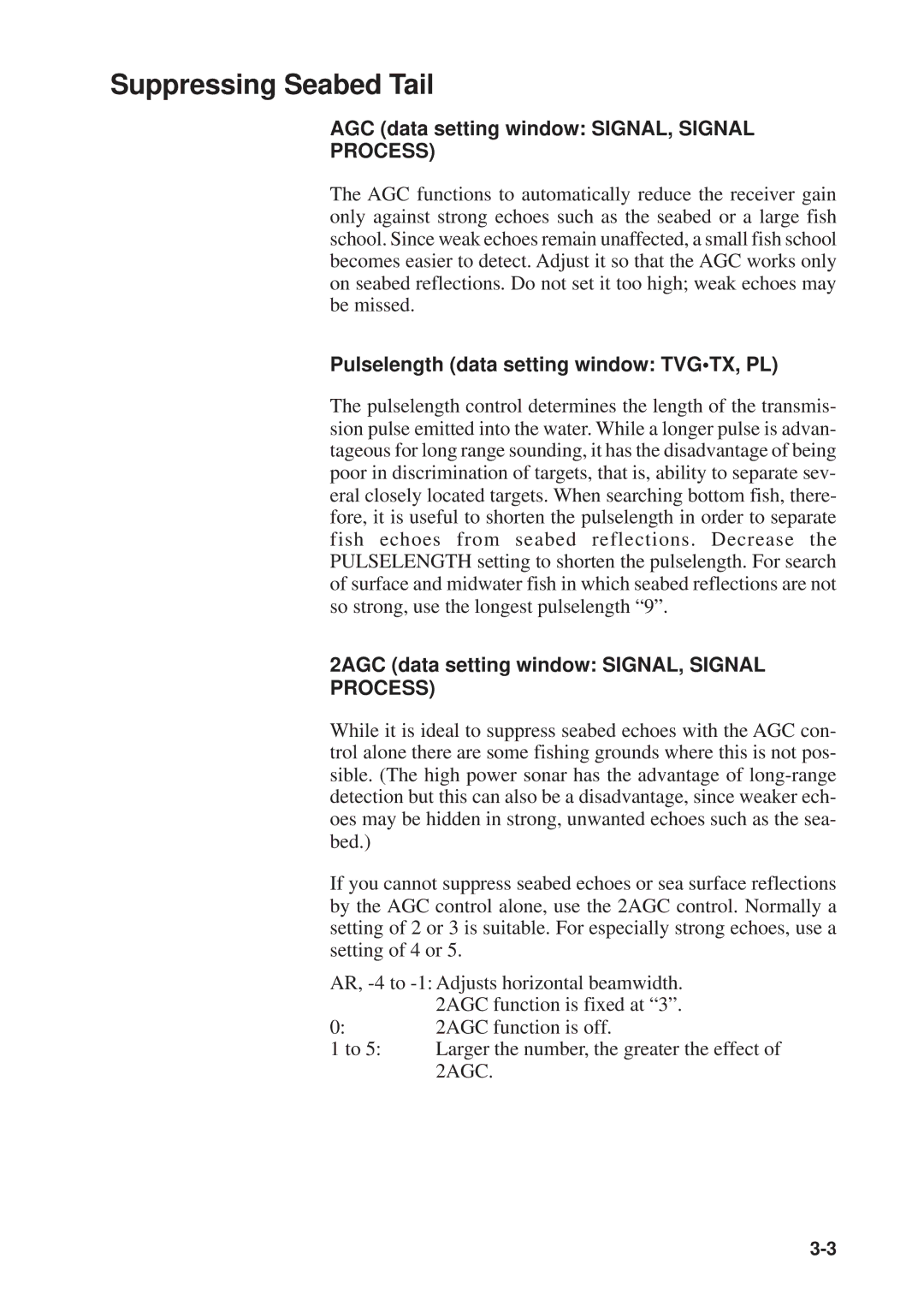Suppressing Seabed Tail
AGC (data setting window: SIGNAL, SIGNAL
PROCESS)
The AGC functions to automatically reduce the receiver gain only against strong echoes such as the seabed or a large fish school. Since weak echoes remain unaffected, a small fish school becomes easier to detect. Adjust it so that the AGC works only on seabed reflections. Do not set it too high; weak echoes may be missed.
Pulselength (data setting window: TVG•TX, PL)
The pulselength control determines the length of the transmis- sion pulse emitted into the water. While a longer pulse is advan- tageous for long range sounding, it has the disadvantage of being poor in discrimination of targets, that is, ability to separate sev- eral closely located targets. When searching bottom fish, there- fore, it is useful to shorten the pulselength in order to separate fish echoes from seabed reflections. Decrease the PULSELENGTH setting to shorten the pulselength. For search of surface and midwater fish in which seabed reflections are not so strong, use the longest pulselength “9”.
2AGC (data setting window: SIGNAL, SIGNAL PROCESS)
While it is ideal to suppress seabed echoes with the AGC con- trol alone there are some fishing grounds where this is not pos- sible. (The high power sonar has the advantage of
If you cannot suppress seabed echoes or sea surface reflections by the AGC control alone, use the 2AGC control. Normally a setting of 2 or 3 is suitable. For especially strong echoes, use a setting of 4 or 5.
AR,
0:2AGC function is off.
1 to 5: Larger the number, the greater the effect of 2AGC.
